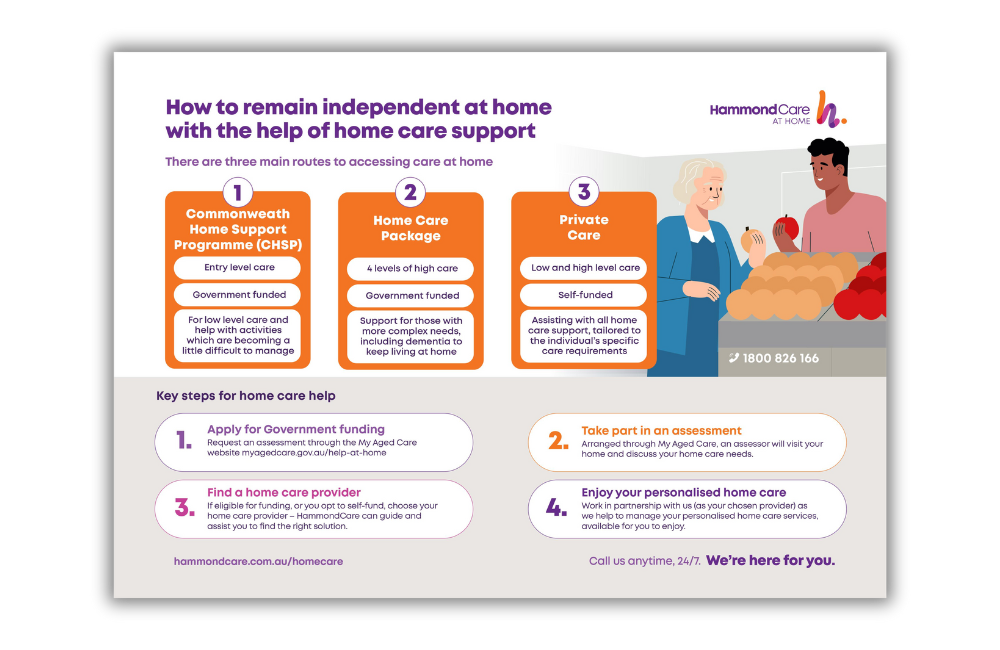Everything About Home Care Providers for People With Disabilities: NDIS Registered Support
Home treatment solutions under the NDIS play an essential role in supporting people with impairments. These solutions are developed to boost everyday living through tailored support, varying from individual care to flexibility assistance. Understanding exactly how to navigate these options can be complicated. This review explores the various elements of NDIS home treatment, from available services to the selection of service providers, highlighting necessary factors to consider for those seeking support. The journey toward equipped treatment starts below.
Understanding the NDIS and Its Purpose
The National Special Needs Insurance Policy System (NDIS) acts as a transformative framework developed to offer support and services for people with impairments. Established to boost the lifestyle and assurance equitable access to necessary sources, the NDIS empowers participants by using customized strategies customized to their special requirements. It intends to promote self-reliance, making it possible for individuals to pursue their personal objectives and aspirations.Through an organized technique, the NDIS designates financing for different supports, including education, work aid, and area participation. This comprehensive system not just concentrates on instant care but also emphasizes lasting developmental results. By promoting choice and control, the NDIS urges individuals to choose their favored company, guaranteeing that treatment straightens with their values and preferences. Eventually, the NDIS represents a significant dedication to boosting the lives of people with handicaps, fostering inclusivity, and developing a much more supportive society.
Kinds Of Home Care Solutions Available
Numerous sorts of home treatment services provide to individuals with impairments, mainly concentrating on personal treatment support and reprieve care options. Individual care aid supplies necessary support with day-to-day activities, while reprieve care uses short-term alleviation for main caregivers. Understanding these solutions is important for ensuring the health of both individuals with handicaps and their households.
Personal Treatment Assistance
While navigating every day life can provide challenges for individuals with disabilities, personal treatment assistance offers vital support customized to their special requirements. This sort of home treatment solution encompasses a variety of tasks made to promote self-reliance and boost lifestyle. Personal treatment aides assist with everyday tasks such as showering, clothing, brushing, and toileting, guaranteeing individuals preserve personal hygiene and comfort. They may likewise aid with dish prep work, medication management, and wheelchair assistance. By giving personalized treatment, these specialists empower individuals to engage even more totally in their social tasks and day-to-day regimens. On the whole, personal treatment help plays a substantial role in promoting dignity and autonomy for those with impairments, enabling them to thrive in their home environment.

Break Care Options
Reprieve care serves as an essential source for households and caregivers of people with specials needs, offering temporary alleviation from the demands of daily caregiving. This kind of service can take numerous types, including at home respite treatment, where qualified professionals see the home to help with care jobs. Alternatively, family members may decide for facility-based respite treatment, where individuals obtain care in a specific environment, enabling caregivers to pause. In addition, some organizations supply emergency reprieve solutions for unanticipated situations. These alternatives not only assist alleviate caregiver stress and anxiety but likewise advertise the well-being of people with disabilities by providing them brand-new experiences and social communication. In general, reprieve treatment plays a crucial function in sustaining both caretakers and those they care for.

How to Gain Access To NDIS Home Care Services
Accessing NDIS home care services includes comprehending the qualification requirements stated by the National Handicap Insurance Policy Scheme. Individuals need to navigate a structured application process to safeguard the required support tailored to their requirements. This section will certainly make clear both the qualification needs and the steps associated with making an application for solutions.
Qualification Requirements Discussed
To receive NDIS home care solutions, individuals must fulfill certain eligibility standards that examine their conditions and requirements. First, candidates should be matured between 7 and 65 years and have a irreversible and considerable impairment that influences their capability to execute everyday tasks. Additionally, they need to be an Australian citizen, a long-term homeowner, or hold a Protected Special Classification Visa. The NDIS calls for evidence of the handicap, commonly through clinical analyses or reports. Individuals must show that they call for assistance to participate in social and economic life. These requirements ensure that solutions are routed in the direction of those that truly require assistance, promoting independence and improved high quality of life for people with handicaps.
Application Refine Actions
Can I Pick My Own Support Employees Via NDIS?
The specific inquired whether they might pick their own assistance workers under the NDIS structure. Normally, individuals have the versatility to pick support employees, promoting customized treatment that lines up with their details requirements and choices.
What Happens if My Requirements Change After Getting Assistance?
If a person's needs modification after receiving support, they should connect these modifications to their company. Adjustments can be made to the care plan, guaranteeing that the assistance remains pertinent and reliable for their situations.

Exist Restricts on The Number Of Hours of Care I Can Get?
The specific asked about potential limitations on the number of treatment hours obtained. Generally, such restrictions might exist based upon certain plans or funding setups, emphasizing the importance of assessing guidelines and agreements consistently.
Can I Make Use Of NDIS Funding for Home Alterations?
The concern of utilizing funding for home alterations arises frequently. Typically, individuals might use NDIS funding for required alterations to their homes, guaranteeing availability and safety and security, contingent upon conference certain qualification standards and standards.
Just how Do I Manage Grievances Regarding My Home Care Services?
To address issues about home care services, people ought to initially record their worries. Then, they can communicate straight with their company, seeking resolution, or rise the issue to relevant oversight bodies if needed. Home treatment solutions under the NDIS play a critical duty in sustaining people with specials needs. Different types of home index care services cater to people with specials needs, primarily focusing on individual treatment support and reprieve care choices. home care package providers. Personal care help provides necessary support with daily activities, while break care provides short-term alleviation for key caretakers. Family members may choose for facility-based respite care, where individuals receive treatment in a customized environment, enabling caretakers to take a break. Exactly how can households successfully take care of the economic aspects of home treatment services for individuals with impairments?